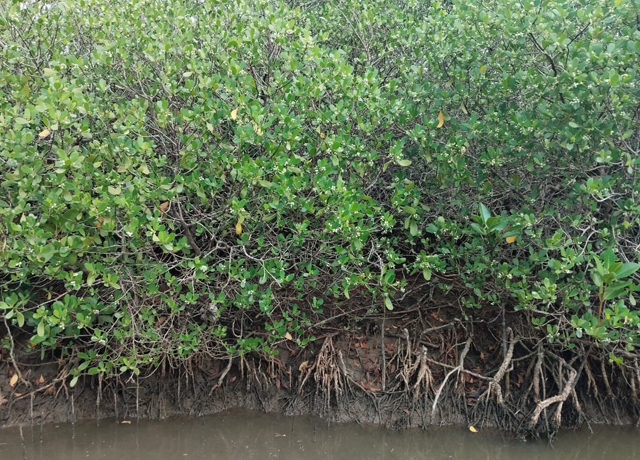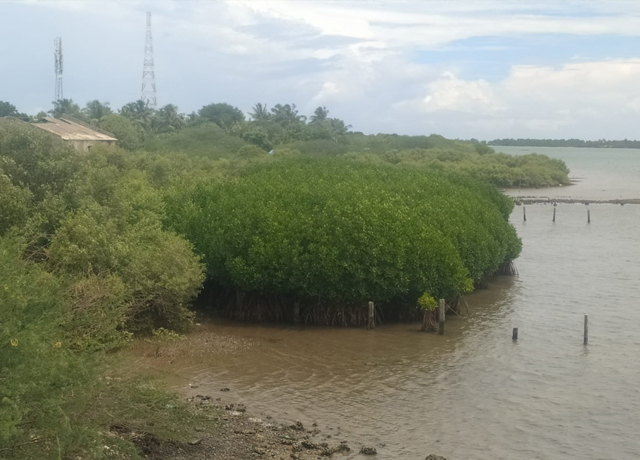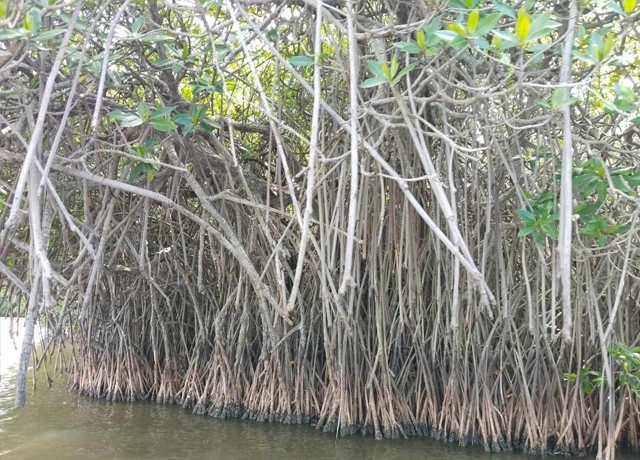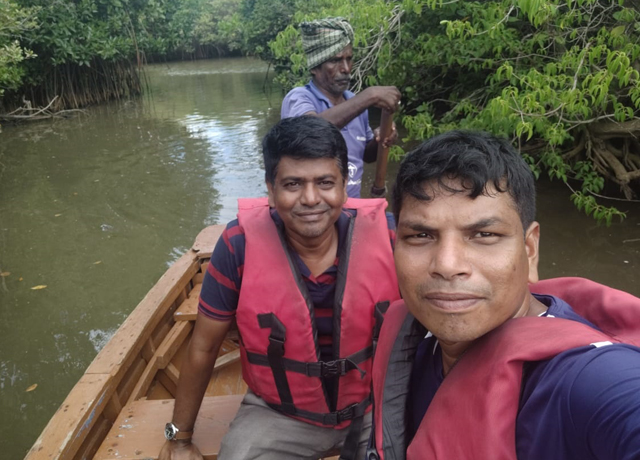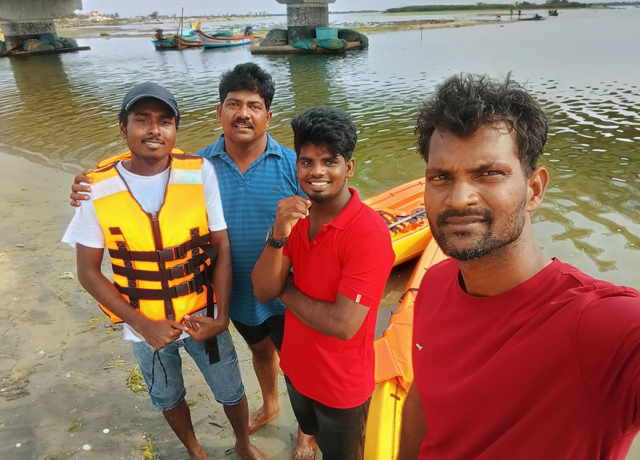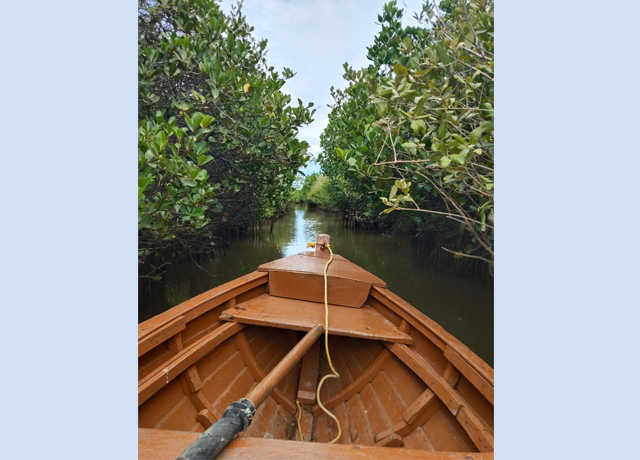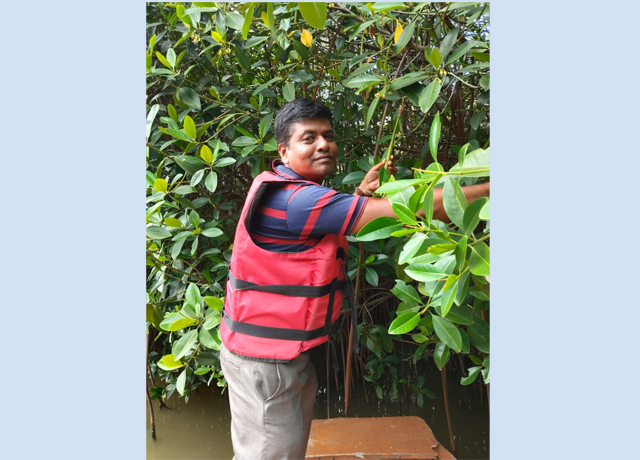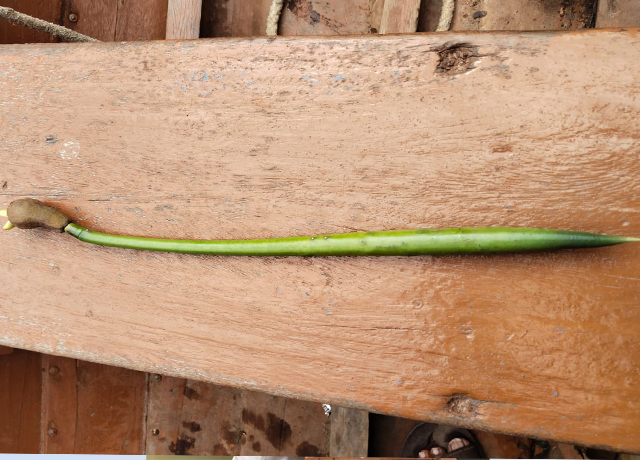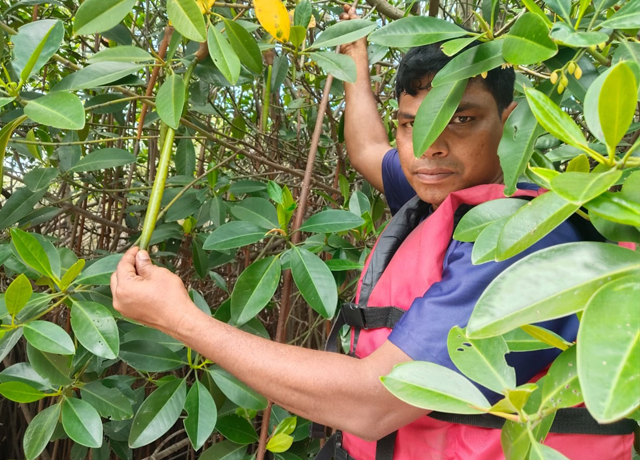Mangrove Forest Field Visit
- Home
- Mangrove Forest Field Visit
Mangrove Forest Field Visit and Preliminary Survey
September 30, 2024
Location: Pichavaram Mangrove Forest
Team Members Involved: Vinoth A. (Program Director), Jegastar (Secretary and Trustee)
Field man : Mr.Balasubramanian ( Parangipettai)
1. Objectives of the Visit:
The visit aimed to achieve the following:
Conduct a preliminary survey of the mangrove ecosystem in Pichavaram.
Identify potential sites for mangrove plantation as part of the REEFREEF's mangrove conservation initiative.
Engage with local communities for their participation in the upcoming plantation drive.
Assess logistical needs for future fieldwork, research, and ecotourism activities.
2. Activities Conducted:
a. Preliminary Survey:
A detailed field survey was conducted to identify areas that are suitable for mangrove plantation. Soil samples were collected to analyze their suitability for mangrove species. Photographs and GPS coordinates of potential plantation areas were documented. Local biodiversity was recorded, including species of birds, fish, and plants associated with the mangrove ecosystem.
b. Community Interaction:
Engaged with local fisherfolk to discuss the possibility of their involvement in future REEFREEF projects. Feedback was gathered regarding the community's concerns related to environmental degradation and loss of livelihoods due to climate change.
c. Ecotourism Feasibility Study:
Explored opportunities for promoting sustainable ecotourism in Pichavaram. Discussed with local boat operators about organizing guided mangrove tours for future visitors, emphasizing conservation education.
3. Key Findings:
Soil Suitability: Initial soil assessments showed high potential for mangrove growth in several areas, especially in the northern part of Pichavaram.
Biodiversity: Rich biodiversity was observed, with the presence of native bird species and a healthy population of fish in the mangrove waters.
Community Involvement: Local communities expressed interest in participating in the plantation and future ecotourism efforts. Conservation Challenges: Issues such as illegal fishing and pollution were identified, which will need to be addressed through future conservation initiatives.
Mangrove Forest Field Visit and Preliminary Survey
Community Interaction
Ecotourism Feasible Study
4. Next Steps:
1. Soil Analysis: Conduct laboratory analysis of soil samples to finalize suitable sites for mangrove planting.
2. Collaborative Meetings: Arrange follow-up meetings with local authorities and the Tamil Nadu Forest Department for official permissions and collaboration.
3. Mangrove Plantation Planning: Begin detailed planning for the plantation drive, including species selection, sapling procurement, and community training sessions.
4. Ecotourism Development: Draft a detailed proposal for sustainable ecotourism activities that could be incorporated into future REEFREEF programs.
5. Awareness Campaigns: Initiate awareness campaigns within the community to highlight the importance of mangrove conservation and how it can directly benefit local livelihoods.
Conclusion:
Our Approach
At REEF, we employ a holistic strategy that integrates sustainable aquaculture, community engagement, and environmental conservation. By fostering collaboration and innovation, we empower local communities to thrive while protecting our precious coastal ecosystems.
- Home
- About
- Services
- Activites
- Contact us
Useful Links
Contact Us
-
17/34, Vinobha Nagar, Indian Airforce Road, East Tambaram, Chennai-600059, Tamilnadu, India
- +91 63830 33935
- info@reefeducation.org
© All Rights Reserved by REEF. Design By Micron Studio
